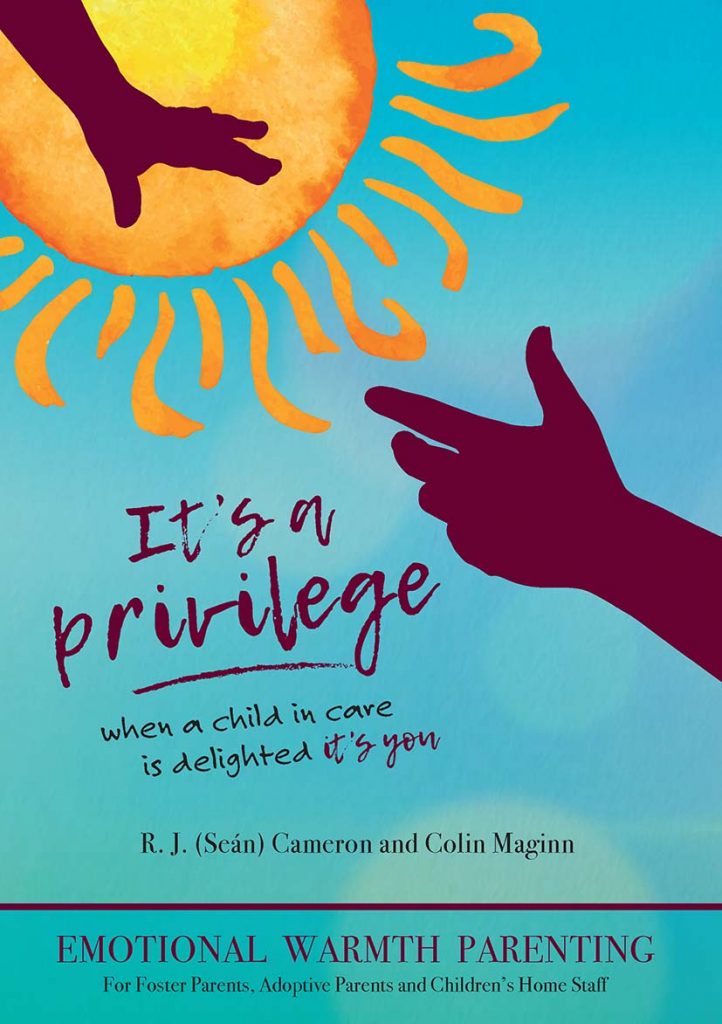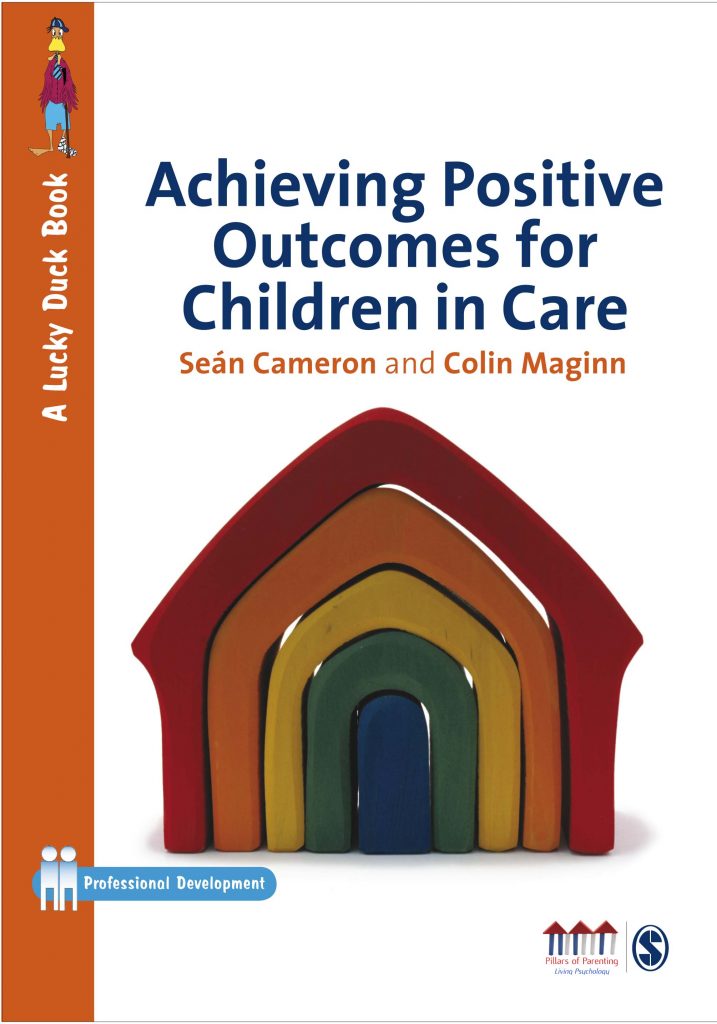He phoned a friend!
Here’s how Emotional Warmth Parenting was developed by combining real life issues in the care of young people with the academic research, theory and experience of a child psychologist and the practical experience of a children’s home manager.

In theory there is no difference between theory and practice. In practice there is.
This quotation attributed to Yogi Berra (an American baseball player) is a good opener for our story which is about how Colin Maginn, his staff in his children’s home and myself, worked together to turn theory into practice and went on to develop our Emotional Warmth Parenting approach.
Dr Seán Cameron
Foundation director and now honorary associate
The Pillars of Parenting story:
As the owner-director of two London children’s homes for almost 20 years, Colin Maginn felt proud of the kindness, patience and tolerance that his staff had with the children and young people in their care, many of whom had complex needs and challenging behaviours. However, Colin was aware that in some incidents children were poorly handled. It was clear that often staff members didn’t know how or why these situations had occurred and conversely, they couldn’t work out what they had done so skilfully when things went spectacularly well with the children. So… he phoned a friend, child psychologist Dr Seán Cameron and together they worked on a new approach which enabled and empowered carers to understand the complex needs of the children and how to provide the support they so badly need. To share their work they published a book (see below) and several peer-reviewed articles.
Ideas behind Emotional Warmth Parenting:
1. Although some looked-after children will benefit from individual therapy, e.g. from therapists in CAMHS, the people who are most likely to bring about positive change for these young people, are those who spend the most time in direct contact with them, namely their foster and adoptive parents and residential carers.
2. Direct contact foster or adoptive parents and carers need to have the knowledge which helps them to understand the impact of maltreatment on children and young people who have been taken into care. Their practice should combine emotional warmth and kindness with evidence-based knowledge established as improving opportunities for children to have fulfilling lives.
3. Such a body of knowledge and practice exists in applied psychology theory and research, but it is often scattered in professional journals, and not-very-reader-friendly books, and difficult to put into everyday child care practice.
4. The adaptation of psychological knowledge to everyday child-care practice can be achieved through regular consultation sessions with small groups of carers led by a child psychologist trained in the use of the Emotional Warmth model of professional childcare.
5. Understanding and supporting who exhibit self-defeating behaviour .
6. Measuring the progress of each young person, over time.
Emotional Warmth Parenting: The key components of the approach:
• Empowering significant adults by sharing the psychological theory and research underpinning the Emotional Warmth model through consultations with a psychologist and training.
• Using the eight ‘Pillars of Parenting’ in the consultations with the psychologist, parenting needs and tasks are identified and individual strategies are discussed and agreed:
1. Primary Care & Protection,
2. Attachments,
3. Positive Self-Perception,
4. Emotional Competence,
5. Self-Management,
6. Resilience,
7. A Sense of Belonging and
8. Personal and Social Responsibility.
• Understanding and supporting children and young people with Developmental Trauma.
• Focus on young people’s signature strengths, identifying, building and using them.
• Recording and utilising the data from (a) the ‘Progress and Development Checklist’ for each young people and (b) from obtaining and monitoring the feedback from the children, their carers, the psychologist consultant, other professionals involved and service managers in both the private sector and local authorities.
• Maintaining fidelity to the Emotional Warmth approach through supervision and support.



The Pillars of Parenting Ltd.,
Business & Innovation Centre,
Wearfield, Sunderland, U.K. SR5 2TA
e-mail colinmaginn@pillarsofparenting.co.uk
Tel: +44 (0) 191 516 6634 or +44 (0) 7983 544899
Company registered in the UK, number 06109026
V.A.T. registration No: 924147434
